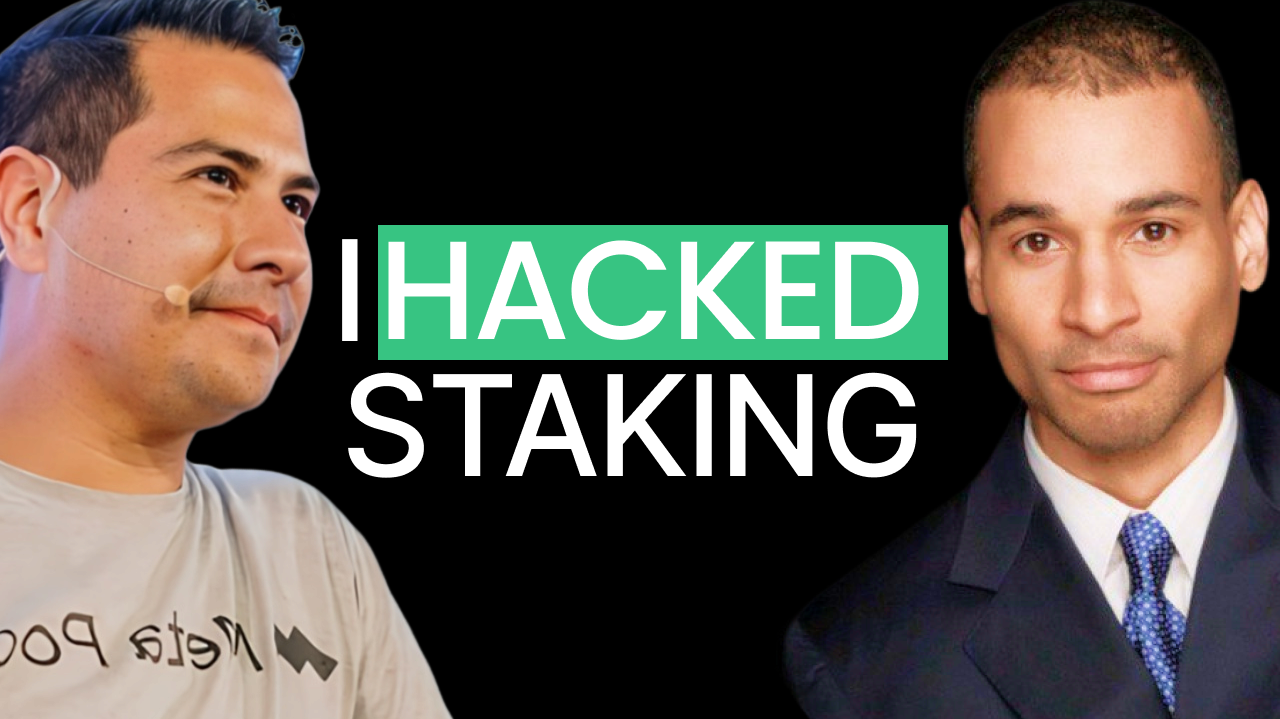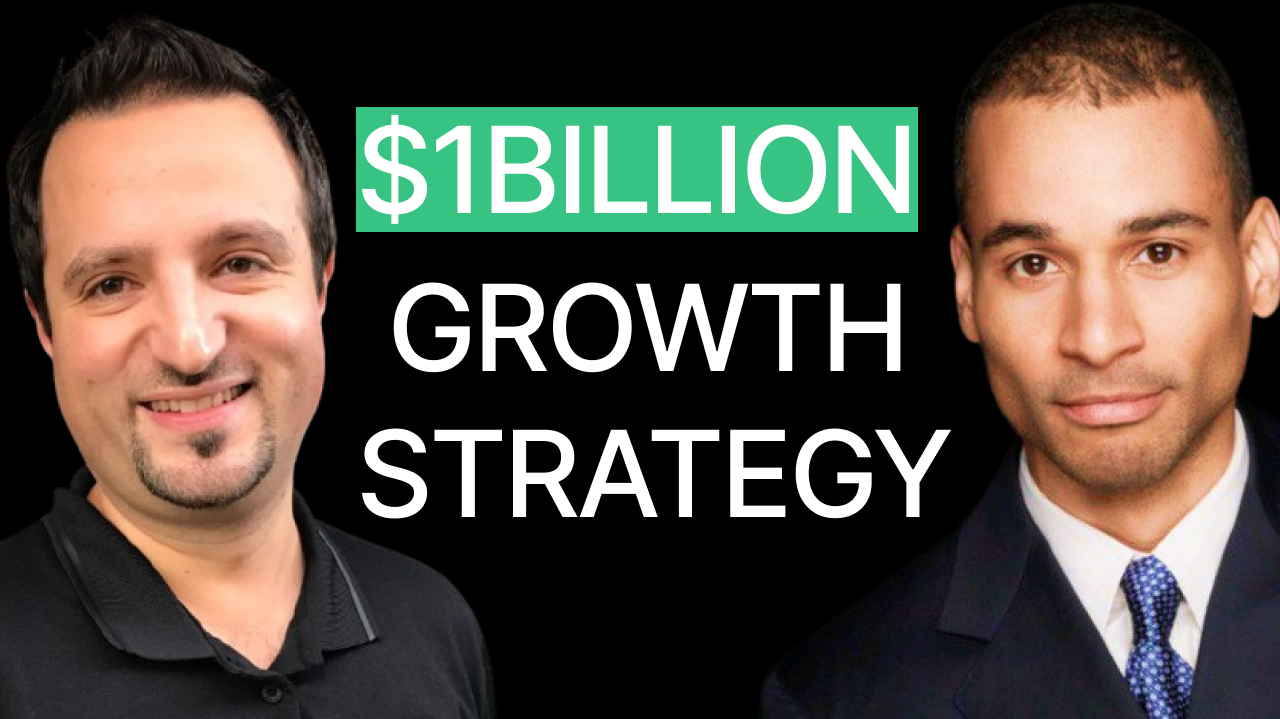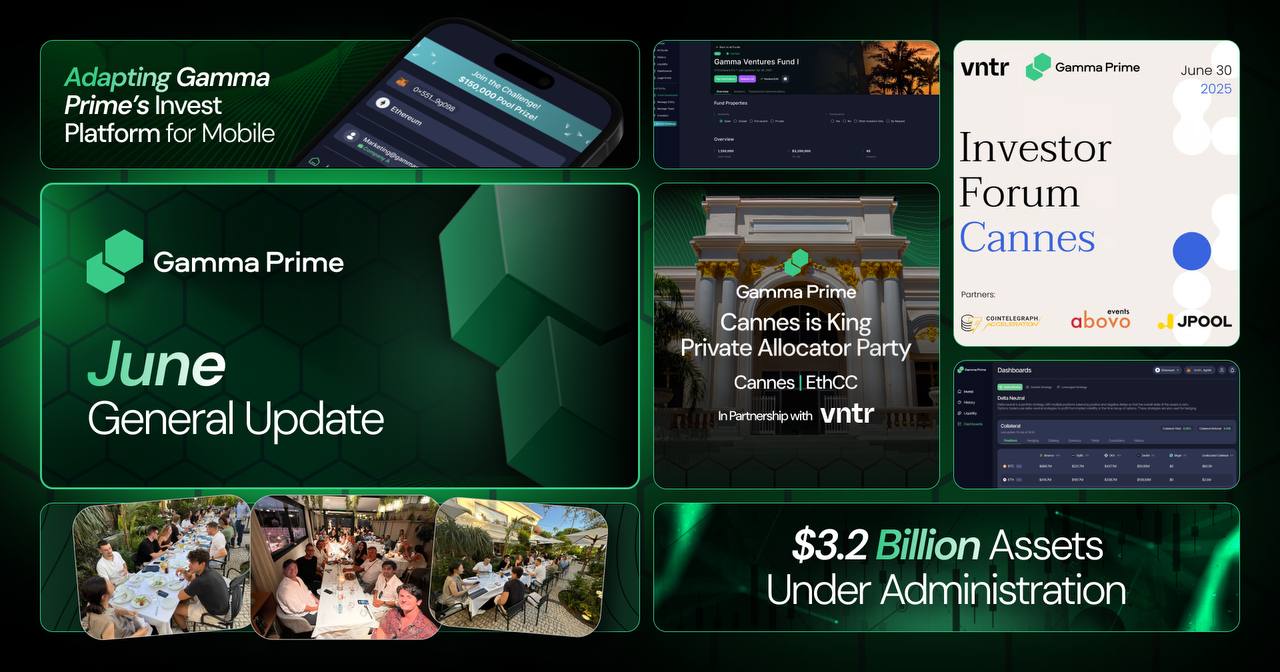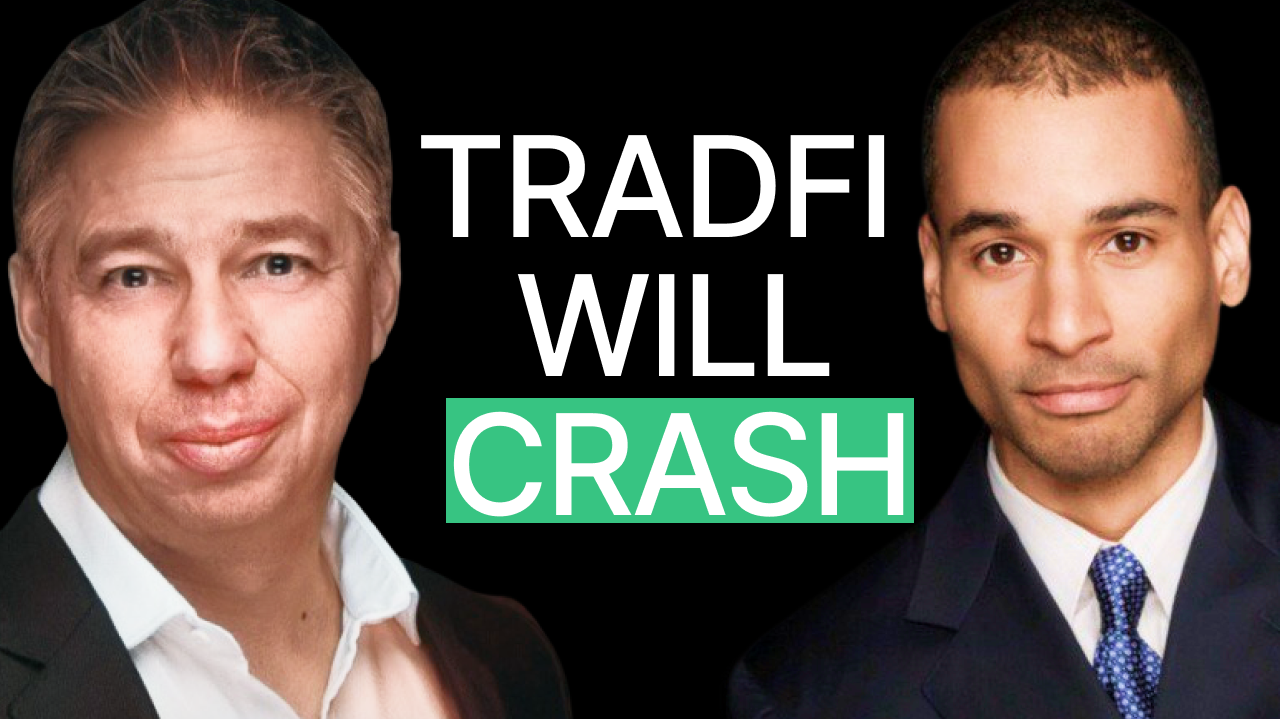Watch the full video interview on Gamma Prime’s YouTube channel – https://youtu.be/kcIZ40U8wJs.
We spoke with Claudio Cossio, co-founder of MetaPool, about how the platform is decentralizing staking across multiple chains from NEAR to Ethereum while empowering validator diversity, community governance, and real-world adoption in frontier markets. With over $100M in TVL and a strong focus on user-owned infrastructure, MetaPool is positioning itself as a key player in the next phase of DeFi.
Interview with Claudio Cossio, co-founder of MetaPool
Korath (Gamma Prime): Great to connect with you, Claudio. From MetaPool, we’ve been following you guys closely. I’m very excited with the things that you guys are working on.
So why don’t I let you do a quick introduction and then we’ll dive into a bit of the origin of MetaPool, where you guys are headed and some unique industry insights as well.
Claudio Cossio (MetaPool): My name is Claudio Cossio. I’m co-founder of MetaPool. MetaPool is a multi-chain liquid staking platform running on top of a DAO.
Claudio Cossio (MetaPool): We’ve been on mainnet since 2021. We got our first start, our feet wet into the blockchain industry through launching at New York Protocol. We then successfully launched on non-EBM platforms such as Solana, ICP, of course, EBM platforms such as of course, Ethereum mainnet, L2s such as Linea, Optimism.
We also supported Cube blockchain and we recently launched on Story blockchain as well. So really excited to be here. We’re a team based mainly in Latin America.
Claudio Cossio (MetaPool): I’m based in Mexico. My co-founder, Lucio, is from Argentina. The team is split between Ecuador, Peru, Colombia, Brazil, Mexico, and Argentina, of course.
Claudio Cossio (MetaPool): And yeah, so yeah, really excited to be here. Got close to 100 million in TBL, total value locked in the different LSTs that we support or liquid staking tokens. And yeah, so my background is I’ve always been in tech.
Claudio Cossio (MetaPool): I was head of product at Atlassian Partner, always into software as a service. And so helped launch multiple projects, including the acquisition of Trello by Atlassian. And so, yeah, so really excited to be here and excited to share what we’ve been building in the last four years.
Korath (Gamma Prime): Perfect, perfect. Yeah, and I’d love to learn a little bit more about the Latin American market as well. So just a high level, why liquid staking? Why MetaPool? Why now?
Claudio Cossio (MetaPool):Yeah, so first when we launched, so New York Protocol is a proof of stake blockchain. This is very important to stand out. Mainly the security and consensus mechanism is run by individuals, organizations, delegating or staking their tokens into the different validator nodes. And this helps secure the network.
Claudio Cossio (MetaPool): And by doing that, you get paid in the emissions of the native token, in this case, NEAR. Now, very important part of doing this is that when anybody has a token that is a proof of stake, either Ethereum, Solana, Story, ICP, you have to make a decision. Either you stake and generate that yield or you participate in DeFi.
Claudio Cossio (MetaPool): With a liquid staking token, what it is, it’s basically a derivative. It allows an individual organization to delegate their tokens, earn the rewards, the staking rewards, on top of a liquid asset. What does this mean? It means that when you delegate, we mint an LST, a liquid staking token.
Claudio Cossio (MetaPool): In the case of NEAR, it’s STAKE-NEAR or ST-NEAR, which represents the delegation of tokens that you’ve done to that, in this case, to the medical platform. And on top of that, the accruing staking rewards. Now, very important, our LSTs are not rebasing tokens, which means that the token itself is accruing in value.
Claudio Cossio (MetaPool): In the case of NEAR, it’s every 12 hours. In the case of Ethereum, it’s every second. So every second you’re accruing the staking rewards.
Claudio Cossio (MetaPool): Now, very important, you can trade that token, you can exchange it, and it will never be pegged. That’s one of the big innovations that my co-founder, Lucio, built when he launched the smart contract on Mainnet for Metapool. And so now people can stake, earn their rewards, and participate in DeFi.
Claudio Cossio (MetaPool): So that’s the main business model for our LSTs. And that’s the utility that it provides to proof-of-stake token ecosystems in the blockchain industry.
Korath (Gamma Prime): Okay, okay, so there’s a pretty novel benefit there then, being able to kind of have the cake and eat it too, in a way. And so who would be, who are the people who this impacts the most?
Claudio Cossio (MetaPool): So first and foremost is the validator node operators, right? One of the big issues with proof-of-stake tokens is that there’s a concentration of delegation to kind of like the top 10 validator nodes. And more importantly, to the most name brand validators, right? You got Everstake, you got Luganodes, you got Figment, you got Klin.
Claudio Cossio (MetaPool): Then you got the centralized exchanges as well. Some of them are running nodes like Binance, right? Coinbase. And so the problem with this is that the concentration of delegation to this nodes creates a deficiency in the Nakamoto coefficient.
Claudio Cossio (MetaPool): Nakamoto coefficient is a way that you measure how decentralized a network is. And so by staking on Metapool, we make sure to not stake in the top 10. And more importantly, we distribute evenly the delegation.
Claudio Cossio (MetaPool): So we’re helping new validator nodes that are coming to the ecosystems, get onboarded more quickly, accrue more delegation without them doing the heavy lifting of going into high net individuals or kind of retail or maybe other protocols and kind of begging to get delegation. That’s where we cut our bread and butter.
Korath (Gamma Prime): So you guys aggregate that side of the market. Is that, so is what I’m hearing then that the concentration in these nodes as they’re naturally the first thing people look at actually creates a type of centralization?
Claudio Cossio (MetaPool): And an attack vector for the protocol, right? Because if the top 10 nodes fall, right? Either through outages or a malicious attack, then the network will suffer, right? You will not get the blocks produced and you will not get the transactions being validated.
Korath (Gamma Prime): And how often do we see things like that happen? Are those kind of black swan events?
Claudio Cossio (MetaPool): Knock on wood, that’s never happened on Ethereum, right? That’s never happened over a near, right? We have had some issues, performance issues with some upgrades on the Solana ecosystem.
Claudio Cossio (MetaPool): Don’t get me wrong. It’s, I know people like to kind of poke there on that protocol, but there’s like a lot of highly talented people there. And it’s part of growing a network, right? You will go through this process of, yeah, sometimes when you do an upgrade on the main protocol, sometimes, yes, like they say, the shit hits the fan and it gets a little bit sideways.
Claudio Cossio (MetaPool): But I think it’s part of the maturing process of an industry, right? And so we believe that MetaPool plays an important role here in distributing to as much validator nodes outside the top 10 and avoiding concentration and improving the Nakamoto coefficient from the different protocols that we are part of.
Korath (Gamma Prime): Interesting, interesting. And so since you guys have come up and you guys are making quite a bit of noise, are you finding that there are follow-ons or that there are other people are realizing this and then coming along with trying to follow the same path?
Claudio Cossio (MetaPool): Yeah, sure, we have competition, right? And I think it’s healthy, right? And the bear market did bring a lot of turmoil and a couple of projects had to leave some ecosystems, right? In the case of Near, Lido was very interested in going to that ecosystem.
Claudio Cossio (MetaPool): Then they decided not to participate, right? We’ve seen other stater, for example, as well. But again, right? Stater has diversified their portfolio of LSTs, right? Lido is heavily concentrated on Ethereum, they’re the leader, right? And so at the end of the day, we’re not too, we are on top of competition, but at the end of the day, we play our own game, right? And I think that’s part of us being here for the long run. And after a couple of winters, right? We’re still here, we’re alive and kicking, right? One of the big things and big differentiations that we put on the table is that all protocol fees being accrued by the Liquid Staking platform are returned back to users that participate in our governance.So we have a program. And so we’ve distributed more than $1.2 million in protocol fees back into the ecosystem, back to our users. And so that’s how we’re building sustainability for our DAO.And more importantly, trying to make a difference, right? One of the big things we’ve done is we’ve put our users front and center of every decision we make. Governance is open, right? It’s on-chain as well. So there’s no forum posts or anything like that.We run everything on-chain. And that’s why the interest that made us come into this industry, right? Like Lucio and myself, between both of us, we have more than 60 years experience building software, right? And so we could have done something else for sure, but we believe that making censorship-resistant, decentralized and permissionless systems that distribute all the value that it creates is something that really is very close to our hearts because we come from what we’re calling frontier markets, like regions that are at the border of massive crypto adoption. And so anyhow, so we’re here alive and kicking, distributing protocol fees, getting the community to rally behind what we’re doing.
Korath (Gamma Prime): And I’d love to learn a bit more about what you mean more specifically about governance and how you guys deploy that.
Korath (Gamma Prime): But first, you mentioned the emerging or the frontier markets where you guys are operating and that these places are ripe for crypto adoption, have been on the leading edge of crypto adoption in some areas. Can you tell me a little bit about that?
Claudio Cossio (MetaPool): Yes. So for us, frontier markets is mainly like Southeast Asia, Africa, Latin America.
Claudio Cossio (MetaPool): We believe that, and last year I spent three months on the road visiting our community in Thailand, in Indonesia, in Vietnam, Korea. I missed a couple of others. Didn’t go to Philippines, but anyhow, that’s kind of on the bucket list because we believe that there we are making an impact.
Claudio Cossio (MetaPool): We’ve seen folks that are making a living out of participating in our governance, running nodes for NEAR, right? So we kind of, I went there to try to understand like how can this improve? How can this be better, right? How can we better serve our community? And there were some hard lessons there, right? It’s still very early in the sense that people are risk averse in the sense of owning their tokens, right? Or their digital assets. Most of the staking is done to centralized exchanges. And this creates a little bit of a bottleneck because at the end of the day, they are the gatekeepers of the industry, right? For better or worse, right? They bring a lot of value, but also it’s in their business to extract value out of it, right? And gatekeeping is a big part of it, right? And don’t get me wrong, I have nothing against Coinbase, Binance, OKEx and Bybit.
Claudio Cossio (MetaPool): Some of them are our partners, right? But at the end of the day, like folks are not too keen on being fully unresponsible for their digital assets. So when we’re talking about permissionless, not everybody is into the security risk that represents, right? Not your keys, not your tokens, right? And so that’s not something that everybody’s too, how can I say, familiar in putting themselves in that position, right? Right, right.
Korath (Gamma Prime):And how would you describe the kind of who that is more important for? Like a smaller player who’s maybe just getting more, looking at getting more involved or somebody who’s established, has a large portfolio?
Claudio Cossio (MetaPool): So we kind of cater to a lot of them, right? So we have some very good backers, right? Like Dragonfly, IOSG, Dharma Capital.We have Aquarius, we have Big Brain Holdings, we have Curiosity Capital, Sky Vision Capital. And so there’s a couple of good investors behind us. So they’re of course one of our, some of them delegate to us as well.
Claudio Cossio (MetaPool): But then again, we have the smaller individuals or organizations, right? Some smaller projects that are from the new ecosystem or from other ecosystems such as Solana or Story, right? That we’re getting involved in. And so for us, we see ourselves as a catalyst for growth, for individuals that wanna be sovereign individuals, right? Which is for them to have full control of their assets, for them to be receiving part of the value that we’re creating. Because if you delegate to us, we are in a partnership, right? Because you are giving us a vote of trust, delegating tokens to us, but very important in a non-custodial manner.
Claudio Cossio (MetaPool): That means that we don’t have complete control of your assets, right? We cannot move them. You have to sign your transactions in order for us to do anything with them, right? And so, but then you have foundations as well. We’re talking, we work very closely with your foundation.
Claudio Cossio (MetaPool): We’re helping them. The reason that I’m here right now in Peru and Lima is that we closed a partnership with NTP Data, which is part of NTP.com. He’s the second largest operator in Asia. And we just did a hackathon.
Claudio Cossio (MetaPool): 95 people were there, 22 projects, right? So we’re not only in onboarding new developers, new builders, but we’re also spreading the word about the benefits of staking, proof of stake tokens, such as near protocol, and just getting the word out there that this is the new opportunity for the next generation of entrepreneurs from what we’re calling frontier markets, right? And so that’s kind of where we kind of have fingers on a lot of pies, but at the end of the day, everyone feeds off of each other, right? And so this is kind of like the virtuous cycle that we want to promote. And more importantly, that we want to be part of as well, because as we are bringing more people in, we’re also bringing, hopefully, an increase in usage of the protocols that we support, right?
Korath (Gamma Prime):Right, right. And when you’re talking about the people that you’re bringing in as well, and tying back to the governance piece and how you’re seeing this actually be able to support people’s livelihoods, can you tell me a bit about more details about that governance, how that works, or what the concept is behind that?
Claudio Cossio (MetaPool): Yeah, so back in 2023, sorry, we launched our multi-chain governance, right? We started over at Near, and all of our governance was on Near Protocol. Then we went multi-chain, so our governance token called MPDAO is now live on Uniswap for EVM platforms and on RIA Finance on Near, which is the top decks there. So what we did is we allow anybody with an EVM compatible wallet with holding our governance token to effectively vote on our governance. Now, very important, what’s the utility for it? One is that the community decides where do we delegate or concentrate our delegation based on votes.
Claudio Cossio (MetaPool): And this is very important. This allows somebody that is just recently came into the validator set on Near right now to vote for his own node and get delegation from us, right? You might feel like this is bribing, but at the end of the day, you’re not bribing, you’re voting for yourself, right? You’re not saying, and we might look into creating delegates and this infrastructure. Right now, it’s a one-to-one in the sense of the voting.
Claudio Cossio (MetaPool): So one people, one organization, one wallet can vote for one node, right? Or multiple votes depending on the amount of MPDOW they hold and the amount of time that they lock it and the amount of voting power that they have. Now, based on the voting power that is effectively allocated to validator nodes or proposals or participate in part of the grants program, you’re getting cut out of the protocol fees direct.And this is casual, you’re not getting paid in governance tokens. What we’re doing right now is a portion of the protocol fees in StakeNear is being distributed back to the participants.
Claudio Cossio (MetaPool): Recently, we voted for that split to be 50-50. Now that 50% is gonna be in our governance token, 50% is gonna be in STNear. And so we’re allowing people to get exposure to both of those digital assets and then accrue the value that they’re generating.
Korath (Gamma Prime): So does that then create a dynamic of selling pressure in the governance token?
Claudio Cossio (MetaPool): Yes. Yes, it does, right? Because when we’re distributing yet, that’s natural. One of the big voting decisions that we made a few months ago was, okay, we don’t wanna create that selling pressure.
Claudio Cossio (MetaPool): We know that it was kind of like, it’s very… Right now, market conditions are a little bit rocky, just to say the least. And so what we voted is that we were gonna distribute the governance tokens with a 150-day lock-up period.
Claudio Cossio (MetaPool): And then if the folks receiving them would like to unlock them, they can unlock them immediately. But then in the 150 days, then they will be unlocked, right? And so that kind of eases the selling pressure. But more importantly for us, it signals also commitment, right? There’s many folks who get the governance token, and then they lock it for more than 150 days, and they’re voting for their own node, right? So that’s kind of the dynamic right now that we’re promoting.
Korath (Gamma Prime): Okay, okay. So it kind of, like you guys have essentially addressed that in a way with people’s own motivations and being able to align with people who wanna be longer-term holders.
Korath (Gamma Prime): So excited to see where Metapool is going, leader in the space as far as the dynamics of what you guys are doing.
Korath (Gamma Prime): And can’t wait to see kind of what comes next from you guys, and we’re following closely. So thank you very much for being with us, and I look forward to what’s next.
Claudio Cossio (MetaPool): thank you very much, Korath.
Korath (Gamma Prime): Perfect, thanks.



